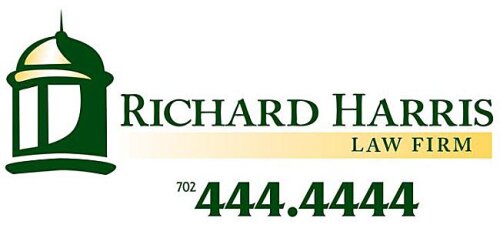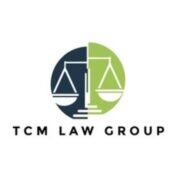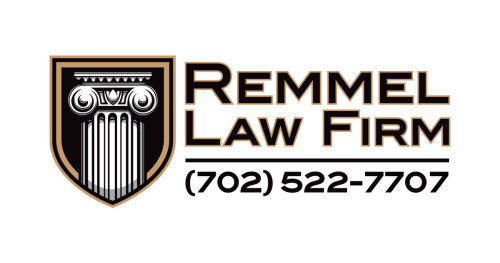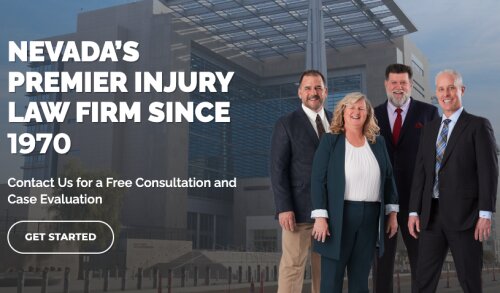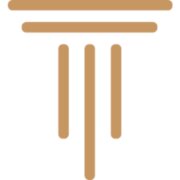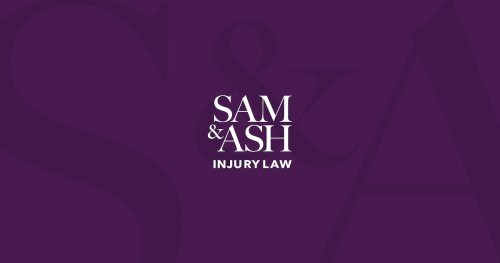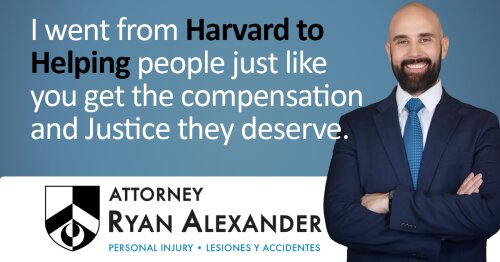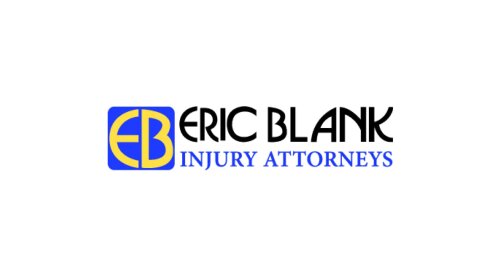Best Antitrust Litigation Lawyers in Las Vegas
Share your needs with us, get contacted by law firms.
Free. Takes 2 min.
List of the best lawyers in Las Vegas, United States
About Antitrust Litigation Law in Las Vegas, United States
Antitrust law in the United States is designed to protect competition in markets by prohibiting conduct that restrains trade, fixes prices, allocates markets, or unlawfully maintains monopoly power. In Las Vegas, as elsewhere in the United States, antitrust disputes can arise in many industries - including hospitality, gaming, construction, health care, real estate, and technology. Antitrust litigation may be brought by federal agencies, by state governments, or by private parties who allege they have been harmed by anticompetitive conduct.
Federal statutes such as the Sherman Act, the Clayton Act, and the Federal Trade Commission Act are the primary legal tools used to challenge anticompetitive behavior. Enforcement is often led by the U.S. Department of Justice Antitrust Division and the Federal Trade Commission. At the same time, Nevada state laws and the Nevada Attorney General can play a role in enforcement and private litigation can be filed in state or federal court, including in Las Vegas-area courts.
Why You May Need a Lawyer
Antitrust matters are highly technical, fact-intensive, and governed by a mix of federal and state law. You may need a lawyer in Las Vegas if you face any of the following situations:
- You are a business that believes a competitor or group of competitors has engaged in price-fixing, bid-rigging, market allocation, group boycotts, or other collusive schemes.
- You suspect a dominant firm is engaging in exclusionary conduct or unlawful monopolization that harms your ability to compete.
- You are a consumer or a business harmed by collusive pricing, and you want to explore a private damage action or class action participation.
- You are involved in a merger or acquisition that may raise competitive concerns and require federal Hart-Scott-Rodino filing or state review and strategic planning.
- Your company has been contacted by the DOJ, the FTC, or a state attorney general about a potential investigation, or you have received a civil investigative demand, subpoena, or grand jury notice.
- You are considering becoming a plaintiff in a class action or serving as a class representative, or you need defense counsel as a named defendant.
- You need counsel to conduct an internal compliance review, design antitrust compliance programs, or advise on pricing, distribution, or collaboration agreements to avoid liability.
Local Laws Overview
Antitrust practice in Las Vegas intersects federal law, Nevada state law, and local court procedures. Key local features to keep in mind include:
- Federal framework: Most major antitrust claims invoke federal law - primarily the Sherman Act, the Clayton Act, and the FTC Act. Federal enforcement can be criminal or civil. Criminal enforcement for hardcore cartel activity such as price-fixing and bid-rigging is handled by the U.S. Department of Justice Antitrust Division and can result in substantial fines and prison sentences for individuals.
- State enforcement: The Nevada Attorney General enforces state consumer protection and trade-practices laws and can bring antitrust or related unfair-competition actions. Private plaintiffs may also assert state causes of action that mirror federal claims or rely on Nevada consumer protection statutes.
- Courts and procedure: Federal antitrust cases in Las Vegas are filed in the U.S. District Court for the District of Nevada. State-level antitrust or business litigation typically proceeds in the Eighth Judicial District Court for Clark County. Federal practice introduces procedural elements such as class certification under Federal Rule of Civil Procedure 23, Daubert standards for expert testimony, and rigorous discovery practices common in antitrust cases.
- Remedies and damages: Federal antitrust law allows injunctive relief to stop anticompetitive conduct and private plaintiffs may recover monetary damages. Under federal law, successful private plaintiffs often can seek trebled damages and attorneys-fees, which can make private litigation economically viable. State statutes may provide additional or parallel remedies.
- Merger review and premerger notification: Large transactions that meet federal thresholds must comply with Hart-Scott-Rodino premerger notification requirements, which can trigger federal review and potential challenges. State agencies, including the Nevada Attorney General, may review mergers that significantly affect local markets or consumers.
- Statutes of limitation and timing: Antitrust claims are subject to statutes of limitation and equitable doctrines such as the discovery rule and tolling. Time limits vary by claim and jurisdiction, so prompt action and legal consultation are important.
Frequently Asked Questions
What exactly is an antitrust violation?
An antitrust violation occurs when one or more parties engage in conduct that unlawfully restrains competition or harms the competitive process. Common violations include price-fixing, bid-rigging, market allocation, group boycotts, and illegal monopolization. Some conduct is per se illegal - meaning it is treated as inherently unlawful - while other conduct is evaluated under a rule-of-reason analysis that weighs competitive harms against procompetitive benefits.
Who can bring an antitrust lawsuit in Las Vegas?
Antitrust suits can be brought by the federal government (through the DOJ or FTC), by the Nevada Attorney General on behalf of the state or consumers, or by private parties - businesses or consumers - who claim they suffered antitrust injury. Private plaintiffs can sue in federal court or state court depending on the claims and parties involved.
What kinds of remedies can I seek in antitrust litigation?
Remedies include injunctive relief to stop anticompetitive practices, monetary damages for losses caused by the conduct, and in many federal cases trebled damages - meaning damages may be multiplied by three - plus recovery of attorneys-fees. Criminal penalties for individuals and corporations can apply for certain offenses like price-fixing.
How long do I have to file an antitrust claim?
Statutes of limitation for antitrust claims depend on the statute and the circumstances. Many federal antitrust claims are pursued under rules that commonly provide a multi-year limitation period measured from when the injury was or should reasonably have been discovered. Exceptions, tolling, and equitable doctrines can affect timing, so it is important to consult an attorney promptly if you suspect a claim.
What is the difference between per se violations and rule-of-reason analysis?
Per se violations are practices so plainly anticompetitive - such as naked price-fixing or market allocation among competitors - that courts treat them as automatically unlawful without detailed market analysis. Under the rule-of-reason, courts examine the facts - market structure, the defendant's market power, the conduct's effect on competition, and any procompetitive justifications - to determine whether the conduct is unlawful.
If I buy a product at a higher price because of an alleged cartel, can I sue?
Potentially yes. Consumers who paid inflated prices because of anticompetitive conduct may have standing to sue for damages. Many such cases are brought as class actions if common facts and legal issues affect large groups of consumers. A lawyer can evaluate whether your circumstances meet the requirements for a private antitrust claim or a class action.
What should I do if my company receives a subpoena or an investigative demand from the DOJ or FTC?
If your company receives any investigatory contact, preserve all relevant documents and electronically stored information, immediately notify in-house counsel or outside antitrust counsel, and refrain from destroying evidence. Counsel can advise on how to respond lawfully, whether to assert privilege, and how to manage communications with investigators. Early legal guidance can significantly affect the outcome.
Can a small business be sued for antitrust violations, or are antitrust laws only about big companies?
Antitrust laws apply to conduct that affects competition, regardless of the defendant's size. While many high-profile cases involve large firms, small businesses can face liability for conduct such as price-fixing or collusion. Conversely, small businesses can also be victims of anticompetitive practices by larger competitors and may have valid legal claims.
How are antitrust damages calculated?
Damages aim to compensate plaintiffs for losses caused by anticompetitive conduct. Calculations may include overcharges, lost profits, or other measures tied to the competitive harm. Antitrust damages often require economic experts to model market conditions and quantify harm. In federal cases, successful plaintiffs may be entitled to treble damages, which increases the potential recovery.
How do I find an antitrust lawyer in Las Vegas and what should I expect in terms of cost?
Look for attorneys or firms with specific experience in antitrust litigation, competition law, or complex civil litigation. Local and national firms with antitrust practice groups, as well as experienced solo practitioners, may handle these matters. Costs vary widely - antitrust litigation can be expensive due to discovery, expert witnesses, and motion practice. Fee arrangements may include hourly billing, partial contingency, or contingent-fee structures in some cases. Ask prospective counsel about experience, past results, fee arrangements, and case strategy during an initial consultation.
Additional Resources
Helpful organizations and resources for antitrust matters in Las Vegas include federal and state enforcement agencies and local legal institutions. These bodies provide enforcement, guidance, and public information:
- U.S. Department of Justice - Antitrust Division - federal criminal and civil enforcement authority for antitrust matters.
- Federal Trade Commission - enforces civil antitrust and consumer protection laws and issues policy guidance.
- Nevada Office of the Attorney General - enforces state consumer protection and may take action on anticompetitive conduct affecting Nevada residents.
- U.S. District Court for the District of Nevada - forum for federal antitrust litigation in the region.
- Eighth Judicial District Court - Clark County - forum for state-level civil litigation in Las Vegas, including business and competition disputes.
- Nevada State Bar and local bar associations - directories and lawyer referral services to find attorneys with antitrust experience.
- Professional groups - such as state and national antitrust bar sections and trade associations - which publish guidance, model practices, and continuing legal education materials for practitioners and the public.
Next Steps
If you believe you have an antitrust issue in Las Vegas, consider the following steps:
- Preserve evidence: Immediately preserve all documents, emails, contracts, pricing records, bids, meeting notes, and electronically stored information that may relate to the matter.
- Avoid potentially risky communications: Do not discuss the matter with potential co-defendants, competitors, or third parties in ways that could be misconstrued. Coordinate with counsel on public statements.
- Consult experienced counsel: Seek an attorney experienced in antitrust litigation promptly to evaluate your claim or exposure, explain applicable statutes and deadlines, and develop a plan. Early legal advice is critical for preserving legal rights and responding to agency contact.
- Evaluate remedies and strategy: With counsel, assess whether to pursue a private lawsuit, join a class action, cooperate with government investigations, negotiate a settlement, or pursue injunctive relief. Litigation can be long and costly - lawyers will discuss potential outcomes and cost structures.
- Consider expert evaluation: Antitrust claims often hinge on market definition, economic impact, and damages. Experienced antitrust counsel will work with economists and industry experts to evaluate the strength of a claim or defense.
- Know your timelines: Ask counsel about statutes of limitation and any regulatory filing deadlines that may apply to your situation and act promptly to avoid losing legal rights.
Antitrust litigation is complex, but with the right preparation and counsel you can protect your rights or defend against claims. This guide provides a starting point, but it is not a substitute for personalized legal advice tailored to your specific facts and objectives.
Lawzana helps you find the best lawyers and law firms in Las Vegas through a curated and pre-screened list of qualified legal professionals. Our platform offers rankings and detailed profiles of attorneys and law firms, allowing you to compare based on practice areas, including Antitrust Litigation, experience, and client feedback.
Each profile includes a description of the firm's areas of practice, client reviews, team members and partners, year of establishment, spoken languages, office locations, contact information, social media presence, and any published articles or resources. Most firms on our platform speak English and are experienced in both local and international legal matters.
Get a quote from top-rated law firms in Las Vegas, United States — quickly, securely, and without unnecessary hassle.
Disclaimer:
The information provided on this page is for general informational purposes only and does not constitute legal advice. While we strive to ensure the accuracy and relevance of the content, legal information may change over time, and interpretations of the law can vary. You should always consult with a qualified legal professional for advice specific to your situation.
We disclaim all liability for actions taken or not taken based on the content of this page. If you believe any information is incorrect or outdated, please contact us, and we will review and update it where appropriate.



